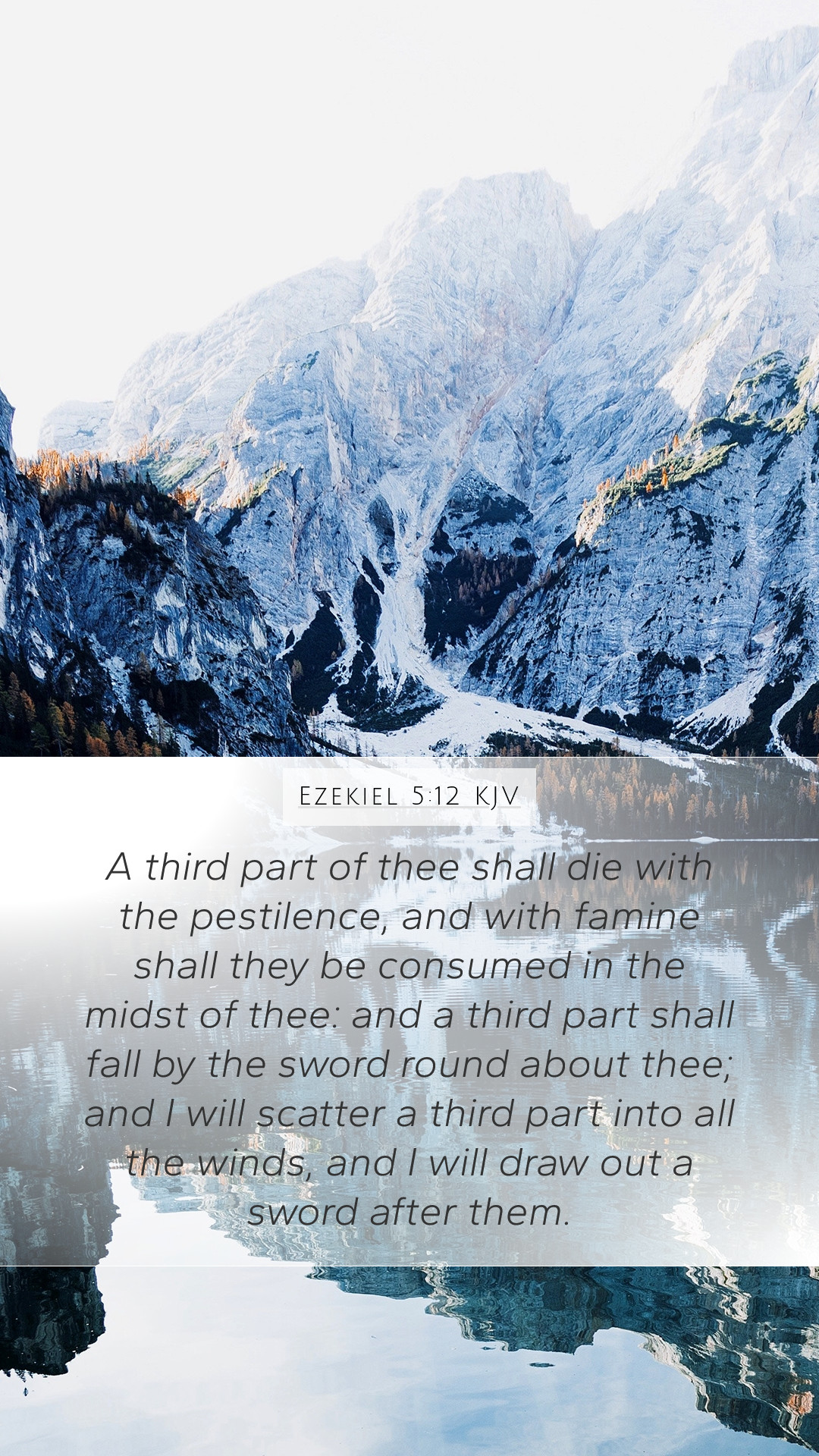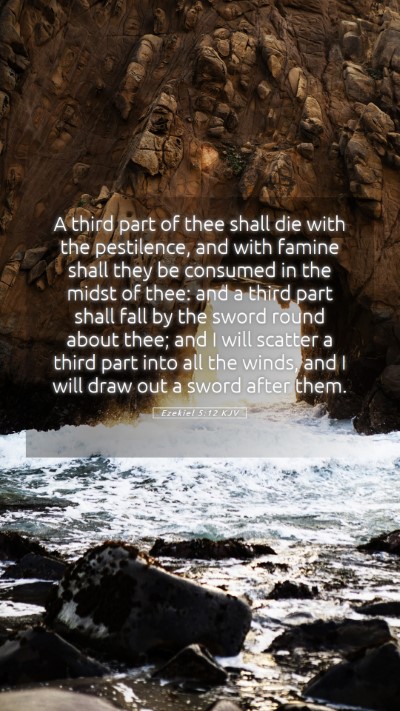Ezekiel 5:12 - Meaning and Interpretation
The verse Ezekiel 5:12 states, "A third part of thee shall die with the pestilence, and with famine shall they be consumed in the midst of thee: and a third part shall fall by the sword round about thee; and I will scatter a third part into all the winds, and I will draw out a sword after them." This passage is a powerful depiction of God's judgment upon Jerusalem, revealing profound biblical themes and meanings. Let us explore this verse through various public domain commentaries to gain a comprehensive understanding.
Overview of Ezekiel 5:12
This verse is situated within a larger context in the book of Ezekiel, where the prophet serves as a watchman for Israel, delivering God's messages of impending judgment.
Contextual Background
Ezekiel speaks during a time when Jerusalem is besieged, and the people are facing the consequences of their rebellion against God. The use of numbers—specifically thirds—emphasizes totality in the destruction to come.
Insights from Public Domain Commentaries
Matthew Henry's Commentary
Matthew Henry emphasizes the gravity and inevitability of judgment in this passage. He notes that the division of the people into thirds illustrates the comprehensive nature of God's judgment. One-third will die by pestilence and famine, reflecting physical suffering and spiritual desolation.
Albert Barnes' Notes
Albert Barnes focuses on the specific methods of death mentioned in this verse. He explains that the use of pestilence and famine reinforces the idea that these are direct consequences of the people's moral decay. The scattering of survivors signifies the preservation of a remnant, which is a common theme in prophetic literature.
Adam Clarke's Commentary
Adam Clarke provides a historical lens, discussing the context of Ezekiel's prophecy. He indicates that the 'sword' represents both literal conflict and divine intervention. His insights suggest that this judgment serves a dual purpose: punishment for sin and purification of the faithful remnants.
Key Themes and Symbolism
- Judgment: The verse vividly portrays God's determination to judge His people.
- Consequences of Rebellion: It reflects the dire consequences of turning away from God.
- Remnant Theology: The scattering and preservation of a remnant symbolize hope amidst destruction.
Application of Ezekiel 5:12
Understanding Ezekiel 5:12 invites self-reflection on our spiritual lives. This scripture can be used as a cautionary tale about the importance of faithfulness and the potential consequences of abandoning God's commands.
Applying to Daily Life
As believers, we can draw lessons on the seriousness of sin and the need for repentance. In difficult times, we can look for God's hand in our circumstances—like the remnant preserved after the judgment.
Cross References
- Jeremiah 15:2: Discusses those destined to die by sword, famine, and captivity.
- Ezekiel 6:8-9: Deals with a remnant that will survive and seek the Lord.
- Zechariah 13:8-9: Describes a scenario where two-thirds are cut off, and a third is refined.
Conclusion
Ezekiel 5:12 serves as a stark reminder of God's sovereignty and the seriousness of sin within His people. Through the insights and analyses provided by various commentaries, we can gain a deeper understanding of Scripture and the profound meanings of Bible verses. This verse is an essential part of Bible study resources, and it invites us to reflect on our relationship with God and the consequences of our actions.


